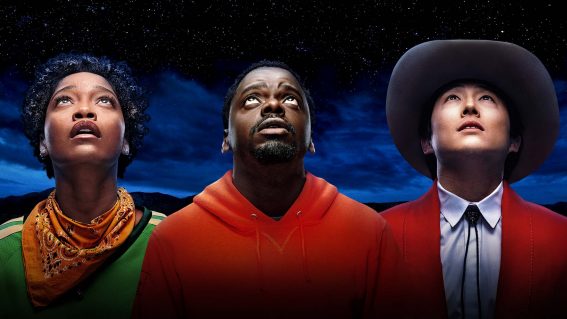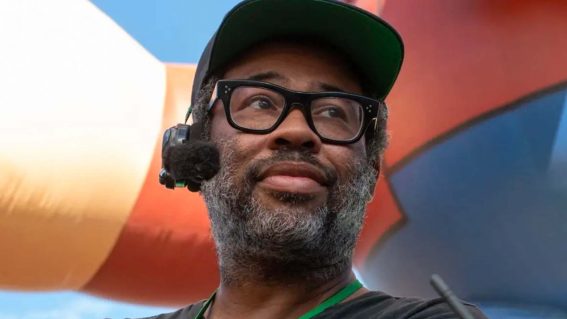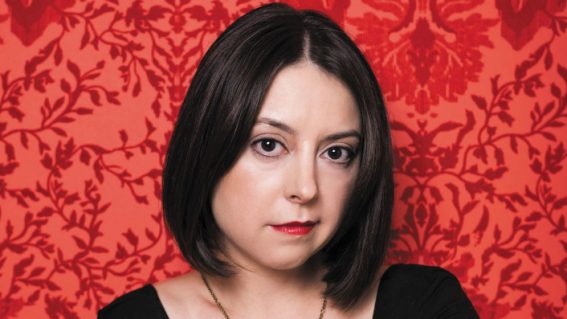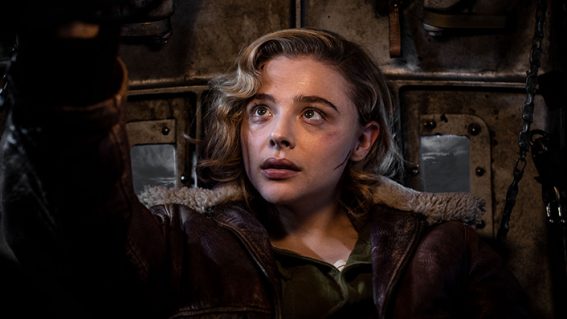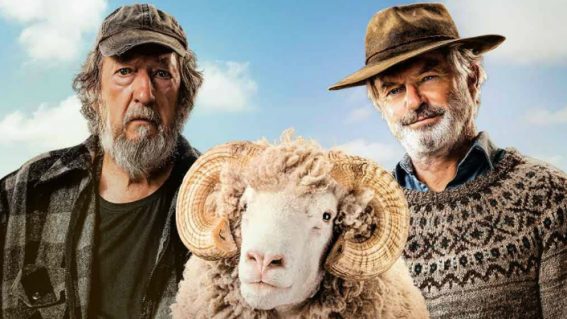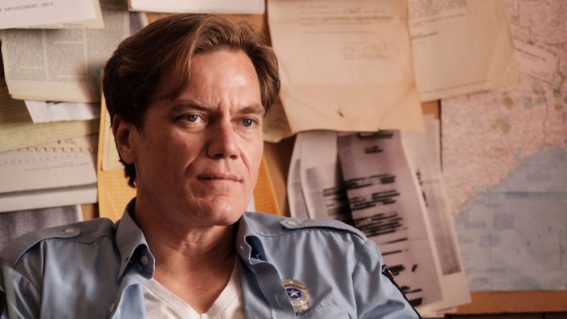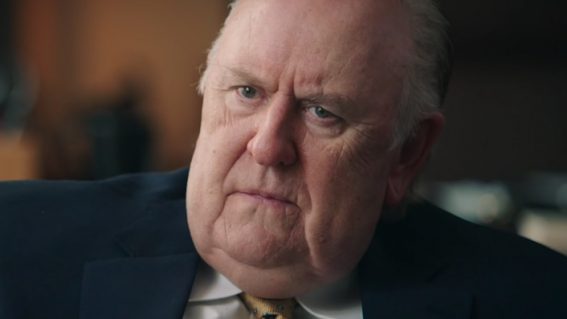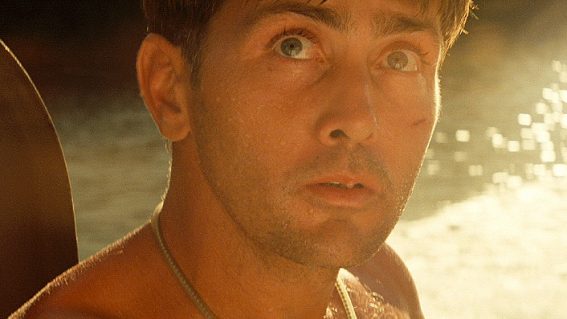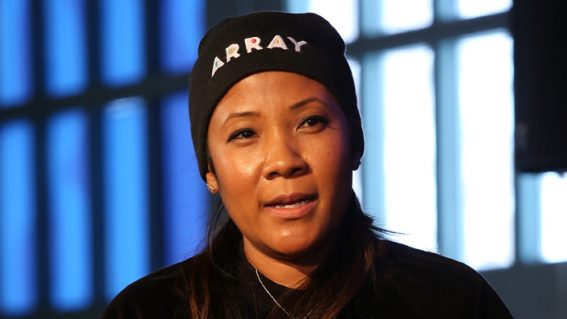Support the Girls director explains his “breastaurant”-set comedy-drama
Andrew Bujalski’s latest follows the staff of boob-oriented bar/restaurant Double Whammies
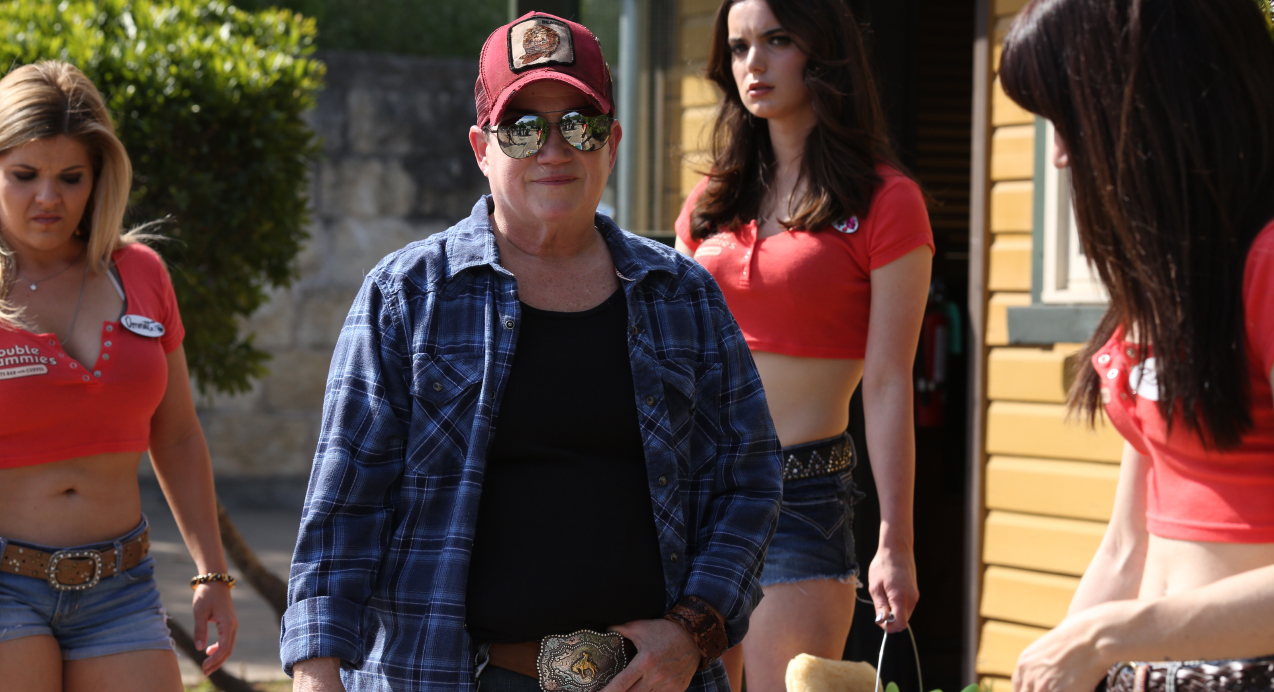
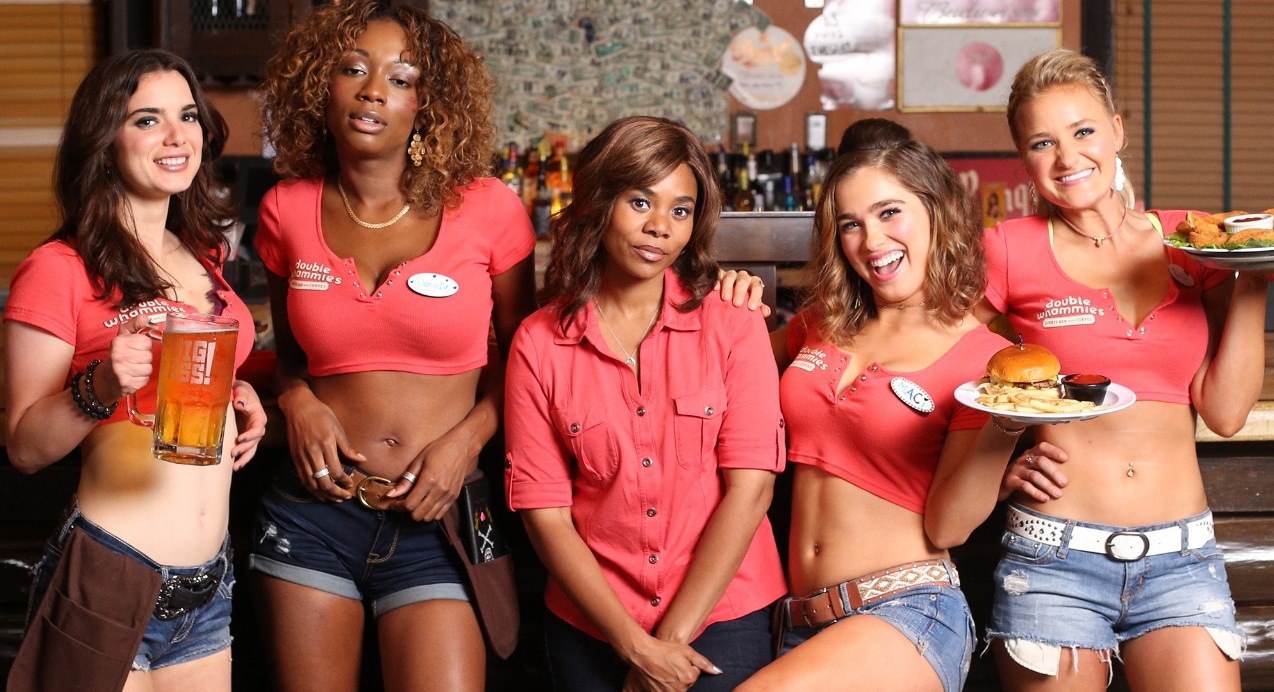
The director of Support the Girls discusses his film with Amanda Jane Robinson.
Bujalski spoke with Flicks about the breastaurant phenomenon, how his film came together, and his time as a student under feminist filmmaking icon Chantal Akerman.
FLICKS: How did the idea for Support the Girls come about?
ANDREW BUJALSKI: Well I don’t know if “breastaurants” exist in New Zealand or not, it certainly seems fairly uniquely American to me, but a decade or so ago I found myself in one of these places in Texas where I live, and something about it surprised me and stuck with me.
I thought I knew what it was before I walked in and then it was something a little different, a little stranger, both more tragic and more amusing than I’d imagined. It seemed to me that it could have only grown out of a particular culture. No other culture on Earth could have every produced a demand for such a place that is outwardly raunchy but inside more about comfort. It’s a very different feeling than a strip club, it sells a very different kind of fantasy.
I was just intrigued by all the weirdness of that, and it stayed with me for years. At one point I tried to pitch a TV series based on the idea and that didn’t go anywhere but I still wanted to do something with it. I asked myself if it could be a movie, and once I knew that I was allowed to get out of the story, then I knew how to get into it.
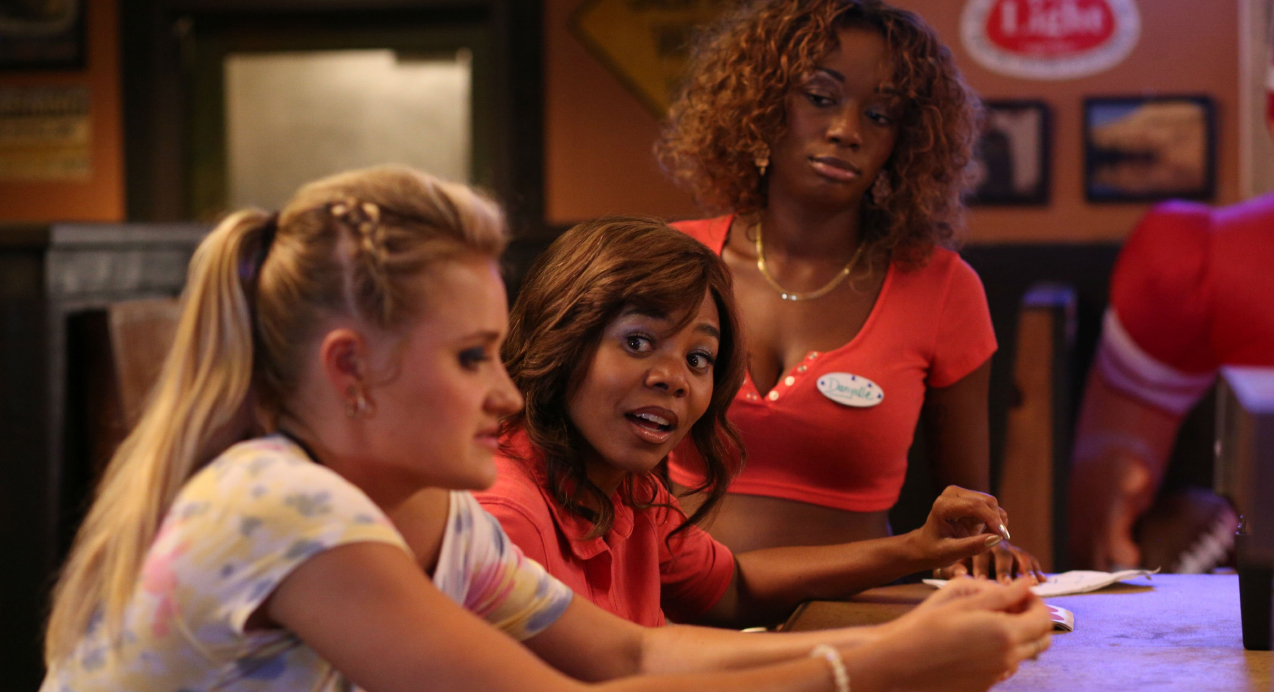
When were you able to figure out who these characters were and bringing them all to this moment in their lives?
There were probably half a dozen of those businesses within a few miles of where I live, so I ate lunch in several of them and went in there at game time or fight time a few times. So some of it was sitting there observing and trying to pick things up but really most of it came from thinking about how the place worked, what it meant, and how different people were going to bring different assumptions and different agendas to it in a place that is based on selling this very weird kind of fantasy that no two people see quite the same way, for the clientele but also for the wait staff, the managers, and the owners—everybody has a slightly different take on what this concept is exactly.
I thought if I could just bring a few different perspectives together and tease out some of the contradictions of the place the stories would pop up all over the place. That was my approach, just bringing a lot of people into this weird concept and letting it all blow up.
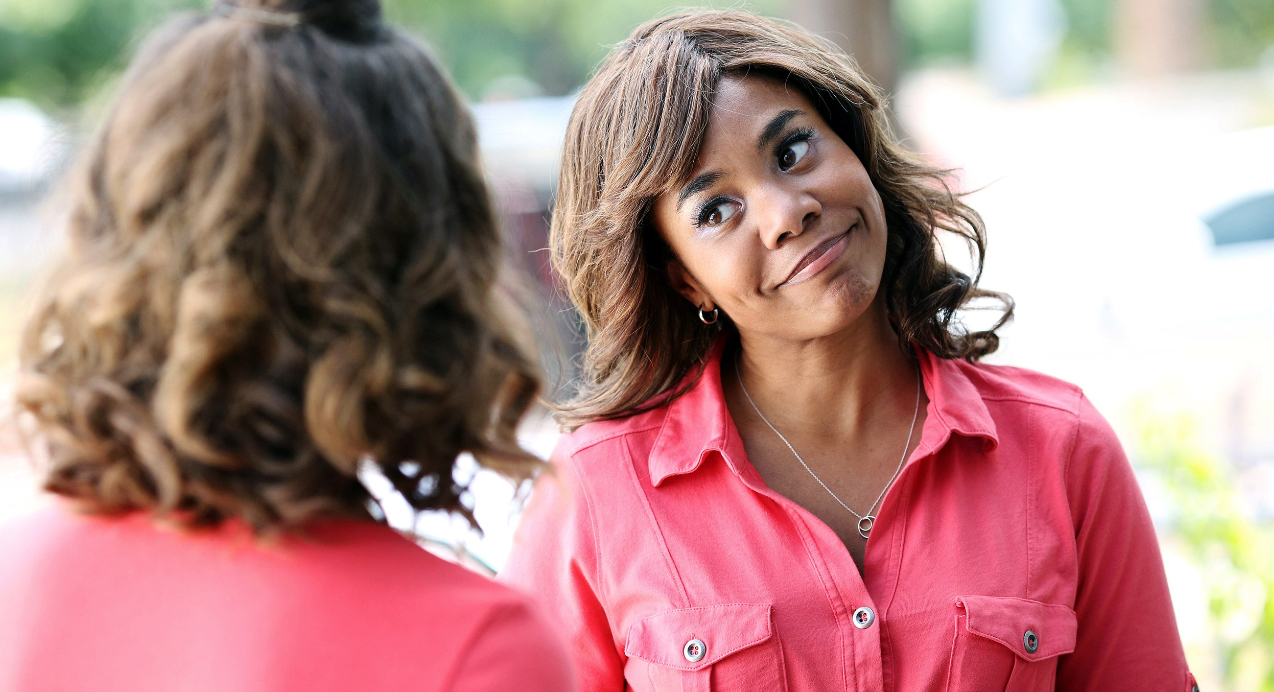
How did you go about casting?
Luck. It’s always luck. Especially with something this big. For a relatively compact movie it’s got an enormous ensemble cast and you really need all those parts to move just right. It always lives and dies by the cast—you open yourself up to the heavens and pray that the right people will fall into your lap.
We didn’t even really think about casting any of the other parts until we had the lead. Regina Hall’s name came up pretty early and that was exciting to me, I was already a fan. I went and met with her in New Orleans right as she was wrapping Girls Trip. We sat down and had a coffee for ninety minutes and just chatted away. She’s an extremely charming human being. I was also holding an image of the character in my mind and projecting that onto her and vice versa, looking for the overlaps that might be interesting. I could feel so much of Lisa coming alive just in talking to Regina and feeling her energy, that was pretty exciting to me.
Once we were talking to her seriously we started looking around elsewhere for everybody else and it was miracle after miracle. We were really lucky to get the right people in there at the right time and I think it’s a pretty thrilling cast.
It is! And they all seem to have this incredible bond, what was your rehearsal process like?
We did what we could. It’s always tricky on any movie, but especially low budget indies like this. I was very lucky that I was able to get Regina, Haley Lu Richardson, Shayna McHayle who also raps under the name Junglepussy—this was her first movie—and Dylan Gelula, those four I was able to get down pretty early for most of a week beforehand. We would play with some scenes, although this movie has an odd structure so there aren’t a lot of traditional scenes.
There’s so much choreography with it, it’s so much about Lisa trying to keep all these spinning plates in the air. She’s always being interrupted, she almost never gets to complete a conversation before somebody else comes in and taps her on the shoulder and tells her she has another problem to deal with. So in that sense, it was tricky to do any kind of traditional rehearsals, but what I found is that while working the scenes can certainly be useful, it’s almost more important just to get to know each other and vibe off each other in whichever few days you can grab.
As we were rehearsing we also had our art department doing this amazing job of building up this restaurant so they got to know the physical space as it was coming together and that was all hugely helpful. I was worried about finding the perfect location. We didn’t have enough budget to build an entire functioning restaurant from the ground up, so we needed to find a place that we could get into that would work for us.
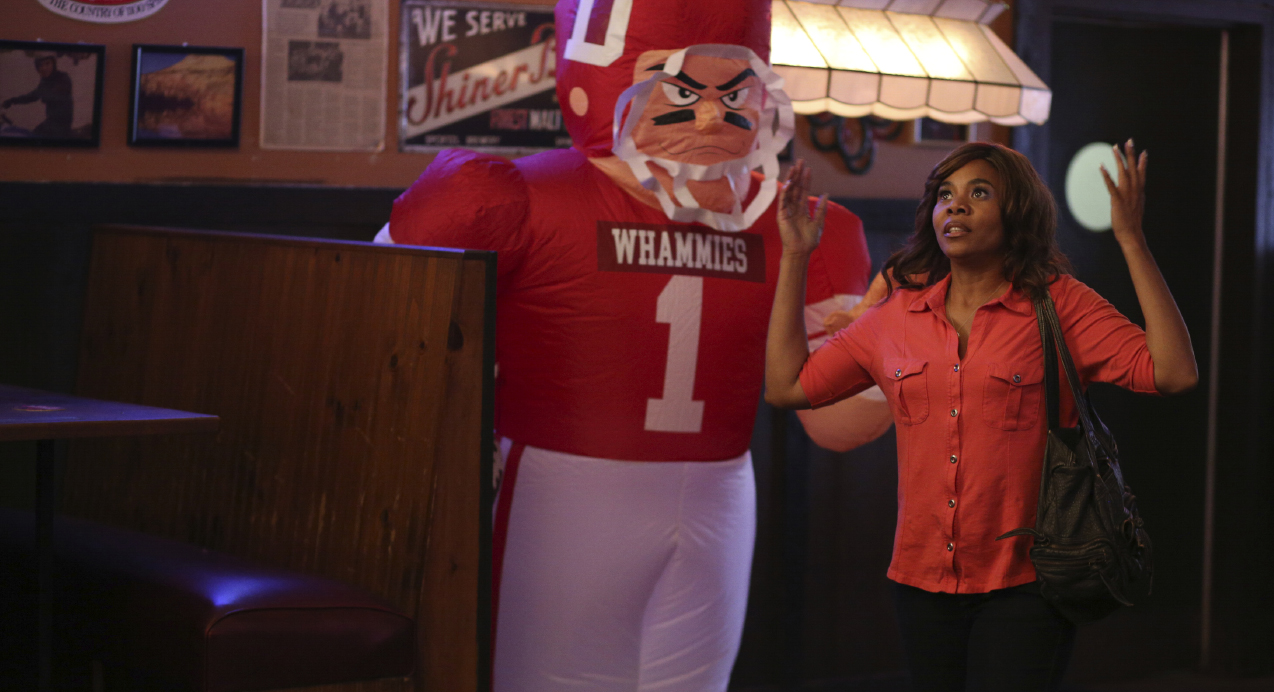
We were very lucky to find an old chain restaurant that had closed down, we could use and adapt a lot of what was there for our purposes. But by truly remarkable coincidence, we were literally next door to an actual functioning so-called “breastaurant”. There was a place called Twin Peaks which is a chain in the States and we were just across the driveway from them.
That was amazing and useful for research purposes because the art department and the actors could just wander in there and we could see the real thing in action. It was a little daunting, it set a high bar. As you try to create a fictional reality you always want it to be as rich as the real reality, and when the real reality is just across the driveway, you know you’ve got a high standard to live up to.
It was scary but they were very nice to us, and in fact Haley Lu and Dylan were brave enough to ask if they could shadow a shift, and so they actually went over there and worked for a shift, and I’m sure they learned more about their characters and the world from that than from anything I said to them.
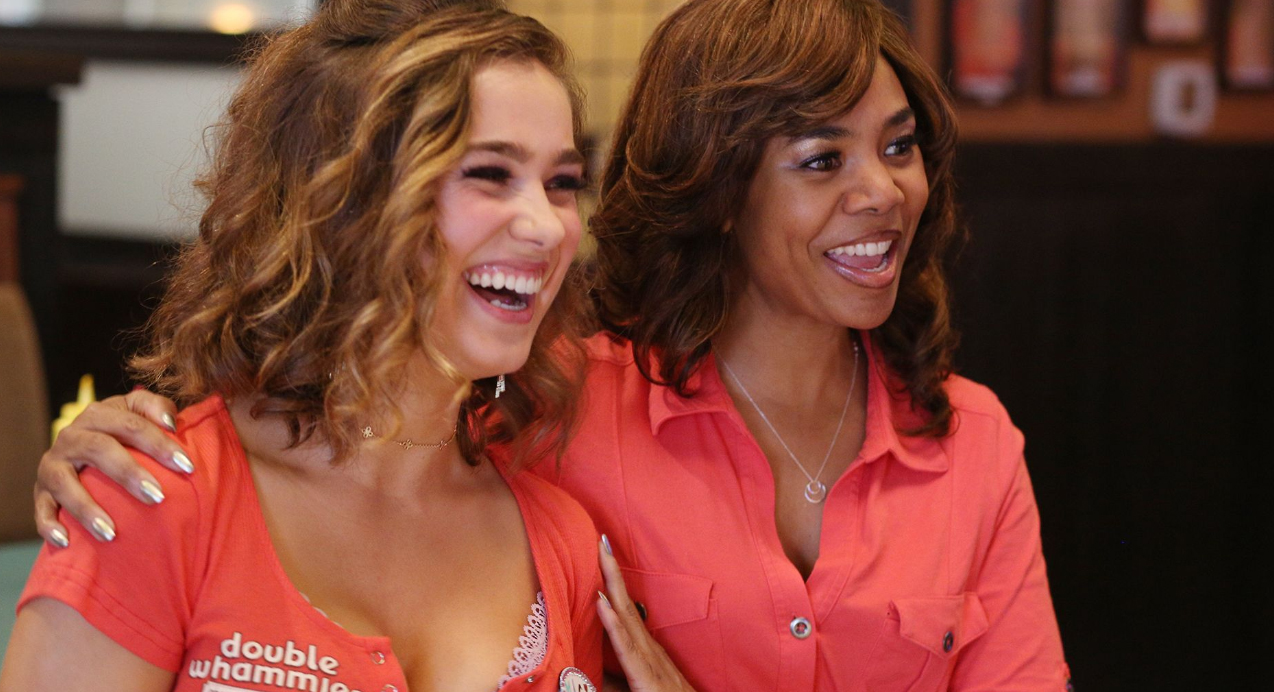
Regina has picked up some nominations and won the New York Film Critics Circle Award for her role, how did that feel as a director?
It felt great, it’s always thrilling. I always come out of my films so amazed at what the actors do. As you sit there in the editing room that’s the material you’re working with, and that’s what you’re trying to craft and show in the best light. It’s very easy to fall in love with the people when they’re in front of your face and it’s very easy to fall in love with them again when you sit there and look at them for months at a time.
So in a way, I come out of every film thinking everyone in the world should stop what they’re doing and go stand on top of mountains and scream praise for my great cast, so when you actually get a taste of an actor getting their due praise it’s really exciting.
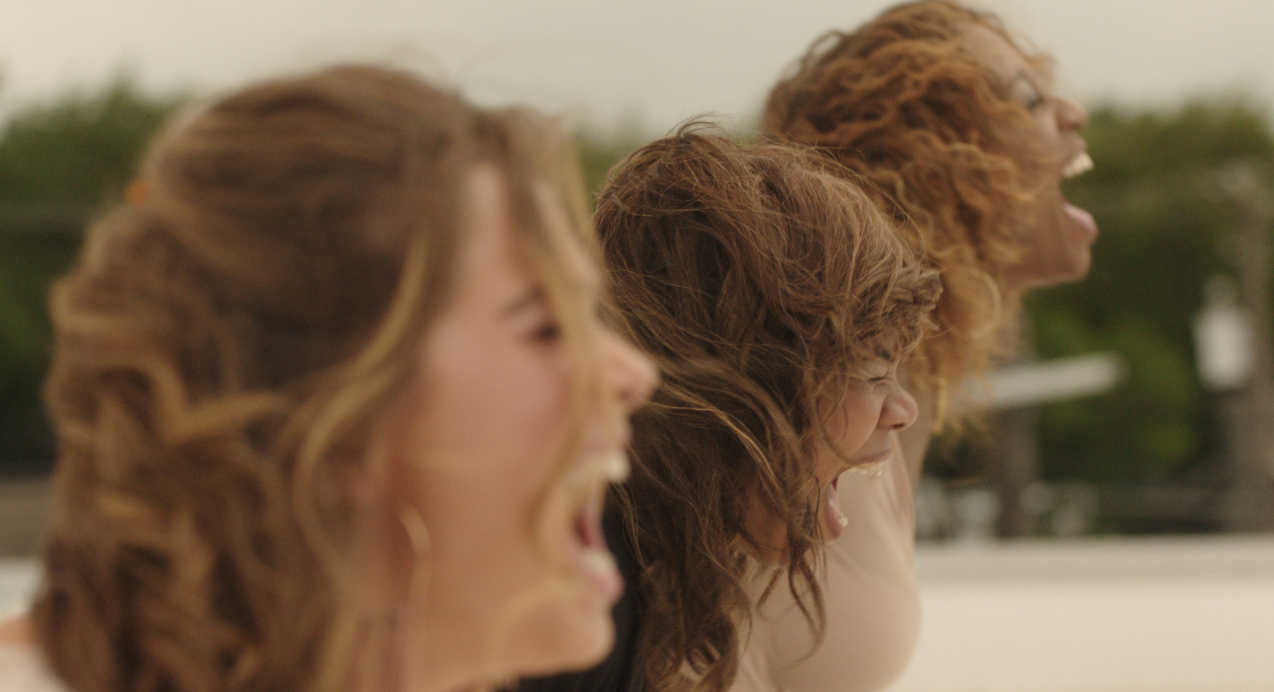
In the case of Regina in this movie, this role was a very tall order. It’s demanding not just in the sense that she’s in almost every shot of every scene but also she’s someone who is always working on behalf of other people and always trying to take care of everyone around her, so her motivations and feelings are always layered and she’s always turning on a dime. It’s never about her clearly chasing one motive of her own. She’s having to laugh and cry and scream sometimes, but more often to keep herself from laughing and crying and screaming. It’s a tricky balance to find.
Regina is someone you dream of as a director—someone who has both perfect instincts for the role but then also works her ass off to make it right. Sometimes actors will be one or the other, great instincts or great work ethic, and you can get there with either of those, but when you have both it’s pretty magical.
The film balances humour and precarity really well, at what point in the process did you find your tone?
You’re always looking for it. You’re following your instincts. And so much of editing is about chasing that and trying to get things to feel just right. We cut the most funny version but that didn’t feel right, and then we cut the most dramatic, heavy version but that wasn’t right either, and in pushing aside some of those things you eventually work your way back to whatever your original instincts were and what made you chase these ideas in the first place.
In this case that was mostly just about feeling how weird the place is. There’s something ineffable about it, something that almost resists being put on film, which is of course why I wanted to do it. So over the course of the edit we gradually found our way back to that strangeness.
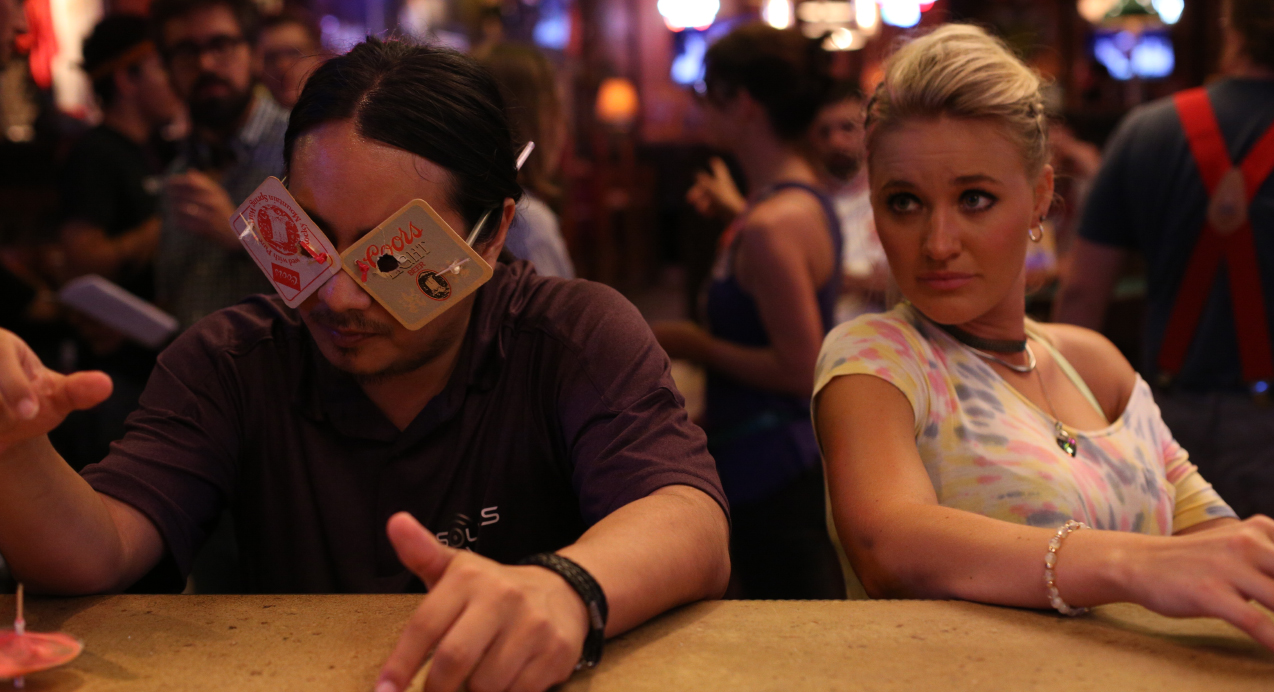
How do you feel about the current climate for low budget indies?
It’s scary, but it’s never not been scary. I comfort myself with that. You can look to one boom time or another and think “wouldn’t it have been nice to work then” but on the other hand this is a boom time, with what people are able to do in the streaming world. Personally, I’ve always felt out of step with commercial cinema, even though there has been a lot of it that I’ve liked quite a bit. I think it’s always been my instinct to do something the market isn’t asking for, so no matter where and when we are in time I’m always going to be looking for a way to make it difficult for myself. And it is difficult, and it’s painful, and I don’t know how much longer I’ll have the energy for it. But whenever you get away with one it’s pretty satisfying.
I read that Chantal Akerman was your thesis advisor, is that correct?
Yes absolutely.
Tell me about that!
Well you know, I was a kid! I was a senior in college. She did other teaching gigs over the years in other places but that was the one year she was at my school. It was just great luck that she was visiting faculty that year and I was able to get her to sign on as my thesis advisor. I was, of course, initially quite intimidated by her. And always intimidated by her, she’s an intimidating person, but she was so sweet and so fascinating.
I’d never really before, or since, met an artist as committed to their work as she was. And not in a humourless way, she was very funny, and very generous. In a very exciting way, she modeled for all of us who were her students what it meant to take your work seriously and to give everything to it. I loved being around her and I loved trying to soak that up from her.
She hosted my 21st birthday party, which was very memorable. She brought three hundred dollars worth of cheese, which I remember finding shocking. I didn’t know that was possible, but for a European it’s possible. I really adored her, and of course, admired her films tremendously.






